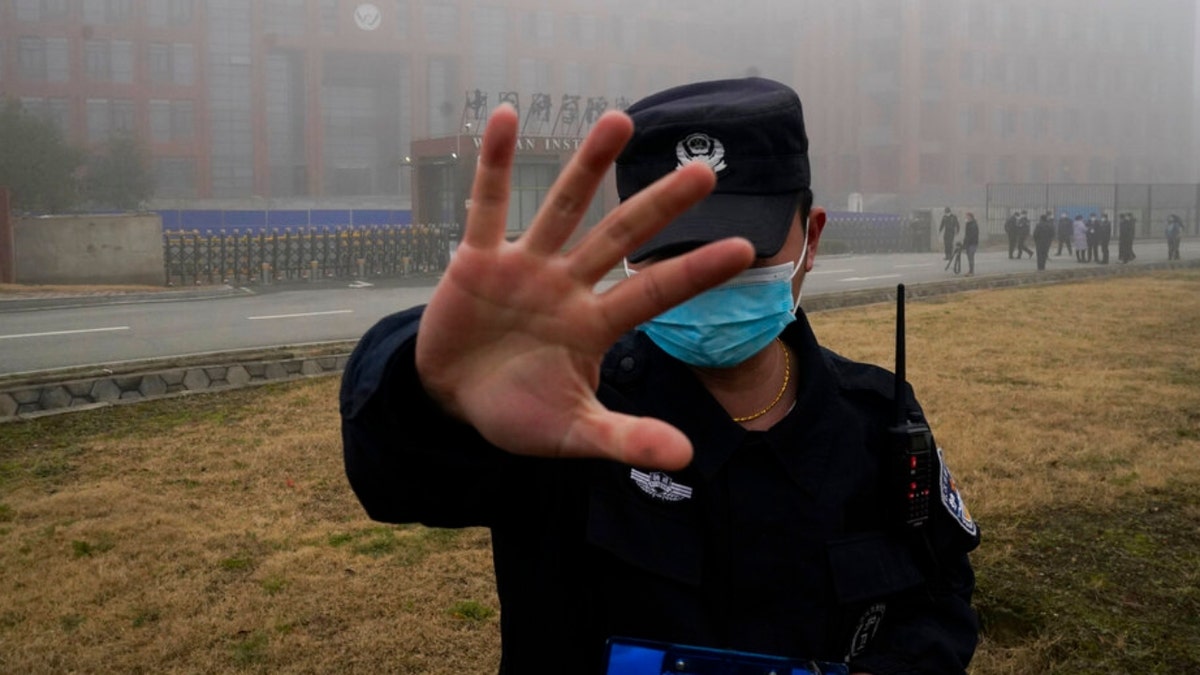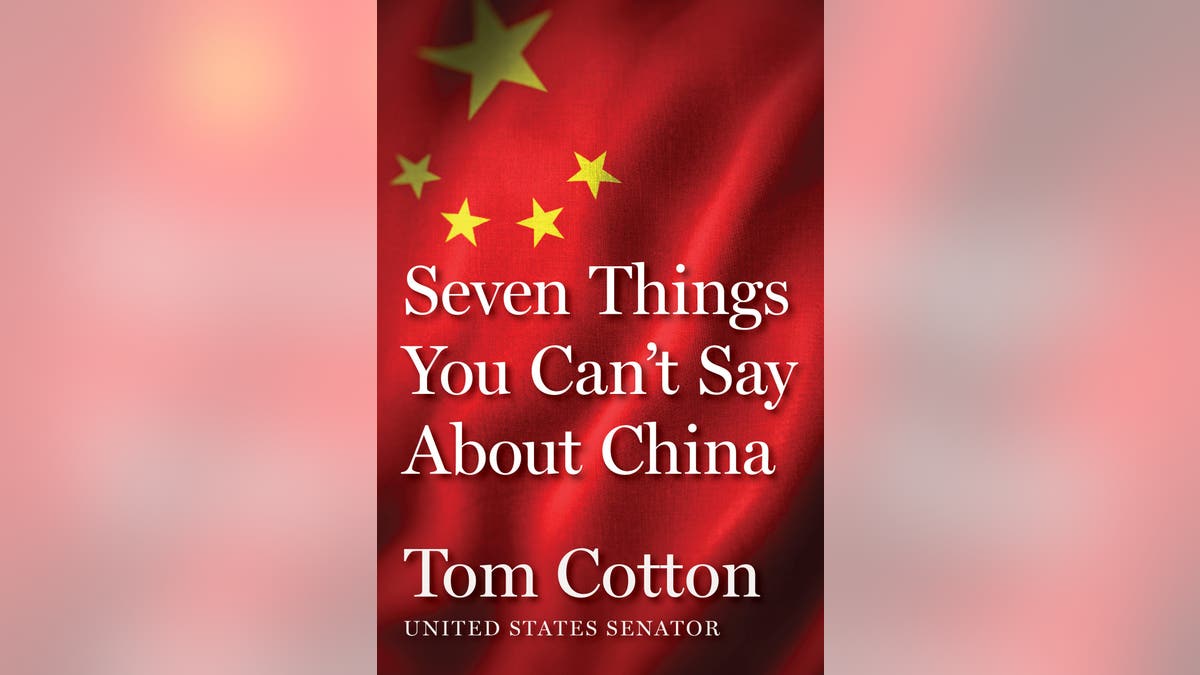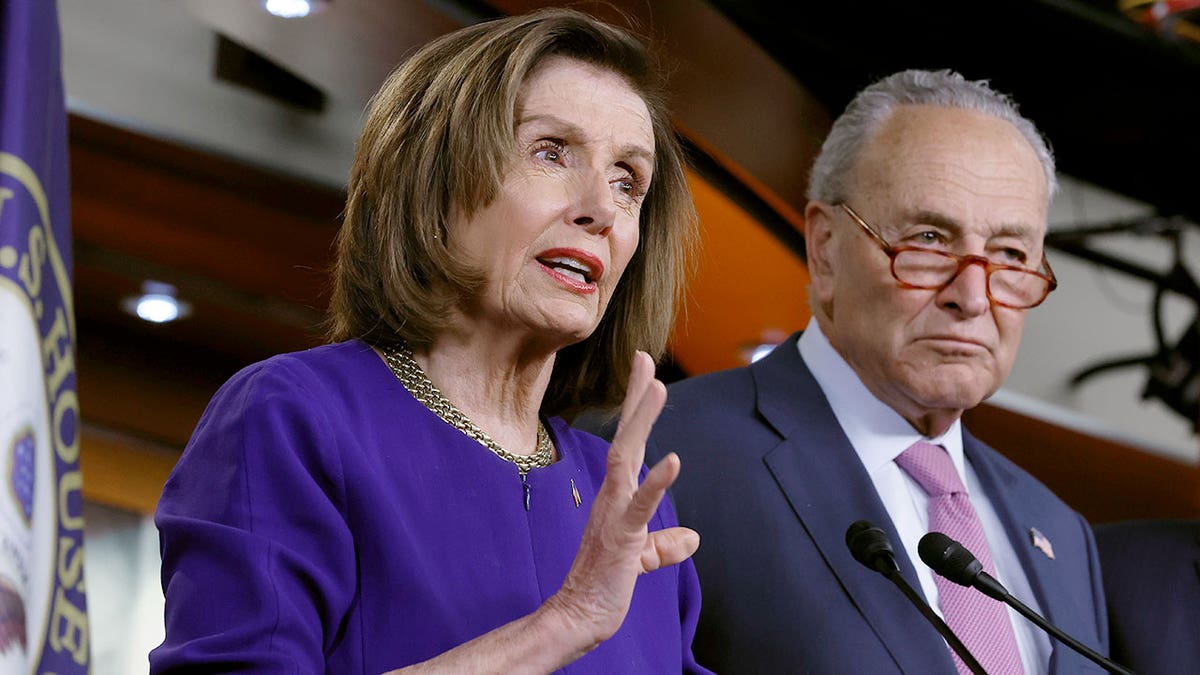From the outset of the COVID-19 crisis, even before Wuhan became a household name, I suspected the Chinese Communist Party was being deceptive. Their early 2020 reports to the World Health Organization claimed the pneumonia outbreak near Wuhan was contained. However, their actions – strict lockdowns, rapid construction of hospitals, stockpiling of medical supplies, and constant crematorium operation – told a different story.
My early skepticism wasn't based on insider information or scientific expertise, but simple observation. I've learned to be wary of the CCP's pronouncements. When their actions contradicted their words and they began withholding crucial outbreak details, it was clear something wasn't right.

Security personnel directing journalists away from the Wuhan Institute of Virology in December 2021. (AP Photo/Ng Han Guan, File)
My initial observations, rooted in common sense, were met with intense backlash, not only from China, but also from their American defenders. They attempted to suppress my perspective at every opportunity.
I advocated for a travel ban from China, a logical step considering China's own Wuhan travel restrictions. Yet, figures like Dr. Anthony Fauci criticized the idea as culturally insensitive, while Joe Biden labeled it fearmongering. Both later reversed their positions. What's striking is not their initial error, but their immediate impulse to defend the CCP and attack its critics – a recurring pattern.

"Seven Things You Can't Say About China" by Sen. Tom Cotton
I also faced criticism for referring to the virus as the "Wuhan coronavirus" or similar terms. This naming convention aligns with established practice (e.g., West Nile virus, Asian flu). Yet, it sparked outrage. CDC Director Robert Redfield deemed such terms inappropriate, Nancy Pelosi claimed they compromised safety, and Senator Chuck Schumer called them bigoted. Major media outlets joined the chorus, and President Biden later prohibited government employees from using these geographically descriptive terms, demonstrating a clear double standard that benefited China.

House Speaker Nancy Pelosi and Senate Majority Leader Chuck Schumer during a news conference on April 28, 2022. (Chip Somodevilla/Getty Images)
Furthermore, I was among the first to suggest a possible lab leak origin for the virus. Wuhan houses a high-security lab studying bat coronaviruses, and American officials had previously raised concerns about its safety protocols. Furthermore, the absence of bats near Wuhan and the lack of evidence linking the wet market to the initial cases pointed towards a lab leak. While Chinese officials vehemently denied this possibility, even branding me as "crazy," the American elite, particularly the media, also dismissed the lab leak theory as a conspiracy.
Over time, however, the narrative shifted. The Department of Energy, the FBI, and a former CDC director eventually acknowledged the lab leak as a plausible origin, as did the CIA later. Even the New York Times eventually published an article outlining the reasons supporting a lab leak theory.
These events highlight several key takeaways about China. The CCP consistently engages in deception. More concerning is the extensive network of American apologists willing to defend China and silence its critics. This silencing has been effective, preventing many Americans from hearing the full extent of the CCP's actions. Many individuals, including myself, face potential repercussions for speaking out against China. This climate of fear and censorship has created an environment where certain truths about China remain unspoken.



Comments(0)
Top Comments